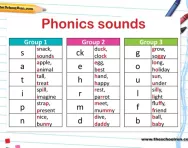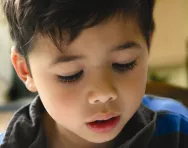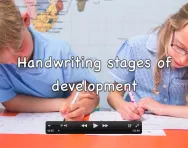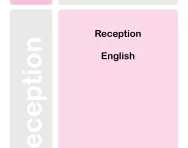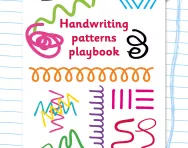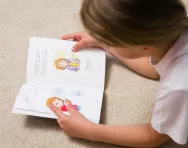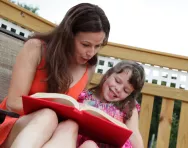Important update from TheSchoolRun
For the past 13 years, TheSchoolRun has been run by a small team of mums working from home, dedicated to providing quality educational resources to primary school parents. Unfortunately, rising supplier costs and falling revenue have made it impossible for us to continue operating, and we’ve had to make the difficult decision to close. The good news: We’ve arranged for another educational provider to take over many of our resources. These will be hosted on a new portal, where the content will be updated and expanded to support your child’s learning.
What this means for subscribers:
- Your subscription is still active, and for now, you can keep using the website as normal — just log in with your usual details to access all our articles and resources*.
- In a few months, all resources will move to the new portal. You’ll continue to have access there until your subscription ends. We’ll send you full details nearer the time.
- As a thank you for your support, we’ll also be sending you 16 primary school eBooks (worth £108.84) to download and keep.
A few changes to be aware of:
- The Learning Journey weekly email has ended, but your child’s plan will still be updated on your dashboard each Monday. Just log in to see the recommended worksheets.
- The 11+ weekly emails have now ended. We sent you all the remaining emails in the series at the end of March — please check your inbox (and spam folder) if you haven’t seen them. You can also follow the full programme here: 11+ Learning Journey.
If you have any questions, please contact us at [email protected]. Thank you for being part of our journey it’s been a privilege to support your family’s learning.
*If you need to reset your password, it will still work as usual. Please check your spam folder if the reset email doesn’t appear in your inbox.
Reception English: what your child learns
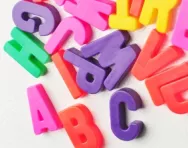
Literacy at this age is taught as part of a broader area: ‘Communication, Language and Literacy’, in preparation for reading and writing. At this age, speaking and listening play a big part in literacy sessions, so your child’s teacher will be reading aloud and the children will be encouraged to sing songs and rhymes and join in with stories.
Speaking and listening in Reception – your child will be:
- Speaking clearly and grammatically
- Listening carefully
- Acting out stories
- Singing songs with actions and intonation
- Taking part in ‘show and tell’ sessions; for example, your child may make a model at home, and tell the class about it
- Making up stories, rhymes and poems
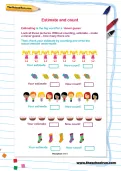
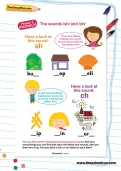
Start the Reception Learning Programme!
- Weekly maths & English worksheets
- Follows the National Curriculum
- Keeps your child's learning on track
Try this at home:
- Sing songs together
- In the car, listen to story CDs
- When you read a new story, ask your child to predict the ending
- Look at a picture book together and play a spotting game.
Reading in Reception – your child will be:
- Naming and sounding the letters of the alphabet
- Linking sounds to letters (phonics)
- Recognising groups of letters, for example, ‘oo’ and ‘ee’
- Hearing and saying sounds in words
- Recognising familiar and common words
- Understanding a story has a beginning, middle and end
Your school will probably have a reading scheme, made up of books of different levels, and your child may start to bring books home to read. You will probably be given a ‘reading record’ book to note down your comments. Don’t be alarmed if some of the books have no words at first: encourage your child to tell the story by looking at the pictures. Your child will probably read individually with the teacher once a week, and also in small groups with other children, which is known as ‘guided reading’.
Try this at home:
- Read with your child every day – little and often is the best way to learn
- Make it enjoyable – if your child isn’t in the mood, try again later
- Rhyming books are great fun and your child can join in
- Be a role model – it’s important to let your child see you reading
- Play with letters: make them out of dough, bricks, or buy some magnetic letters and stick them on the fridge
- Play I-spy when you go out – use the sound the letter makes, rather than its name
Writing in Reception – your child will be:
- Using a pencil and holding it correctly
- Writing recognisable letters, mostly formed correctly and facing the right way
- Writing their name
- Writing labels, captions and mini books
- Using phonics to write simple consonant-vowel-consonant words, and having a go at more complicated words
- Beginning to form simple sentences
- Using basic punctuation
- Beginning to learn to spell (read our Reception spelling explained for parents guide for details)
Children will start forming letters by working on vertical lines and drawing anti-clockwise circles. They will be working on their own stories, based on books they are reading in class, and they will also put together information books. The classroom will have a role-play area, possibly a shop or cafe, and the children will use this to practise handwriting.
Try this at home:
- Develop fine motor skills: try modelling with clay or threading beads. Anything fiddly is good for the hands
- Practise forming letters – it’s often easier to make them big at first
- If your child doesn’t want to pick up a pencil, try finger paints, or drawing in sand
Browse through all our Reception English worksheets, or look through our phonics games and activities for your beginner reader. Our Fabulous phonics pack is our complete guide to everything parents need to know about phonics in EYFS and KS1.
Check your Reception child's progress in English with our free Reception English Progress checks, three mini-tests for the autumn, spring and summer terms.
Explore the Reception English & Maths Learning Journey programmes.

